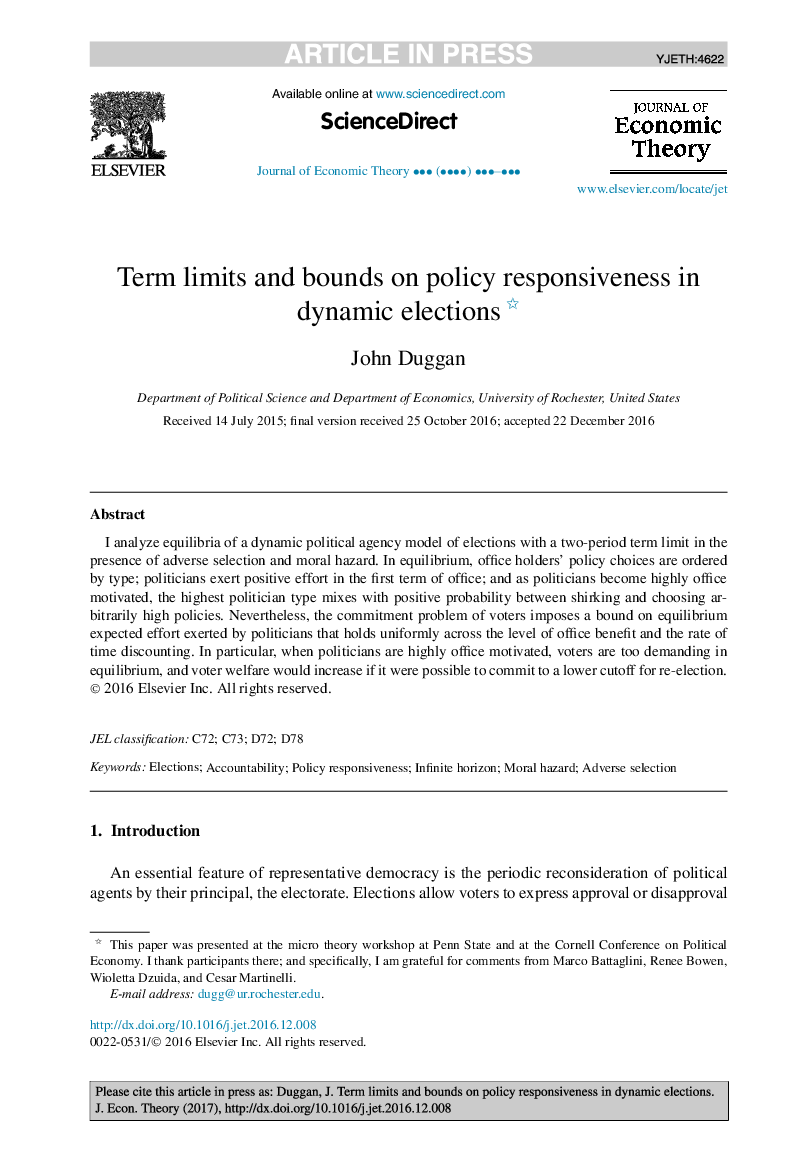| Article ID | Journal | Published Year | Pages | File Type |
|---|---|---|---|---|
| 5100087 | Journal of Economic Theory | 2017 | 38 Pages |
Abstract
I analyze equilibria of a dynamic political agency model of elections with a two-period term limit in the presence of adverse selection and moral hazard. In equilibrium, office holders' policy choices are ordered by type; politicians exert positive effort in the first term of office; and as politicians become highly office motivated, the highest politician type mixes with positive probability between shirking and choosing arbitrarily high policies. Nevertheless, the commitment problem of voters imposes a bound on equilibrium expected effort exerted by politicians that holds uniformly across the level of office benefit and the rate of time discounting. In particular, when politicians are highly office motivated, voters are too demanding in equilibrium, and voter welfare would increase if it were possible to commit to a lower cutoff for re-election.
Related Topics
Social Sciences and Humanities
Economics, Econometrics and Finance
Economics and Econometrics
Authors
John Duggan,
